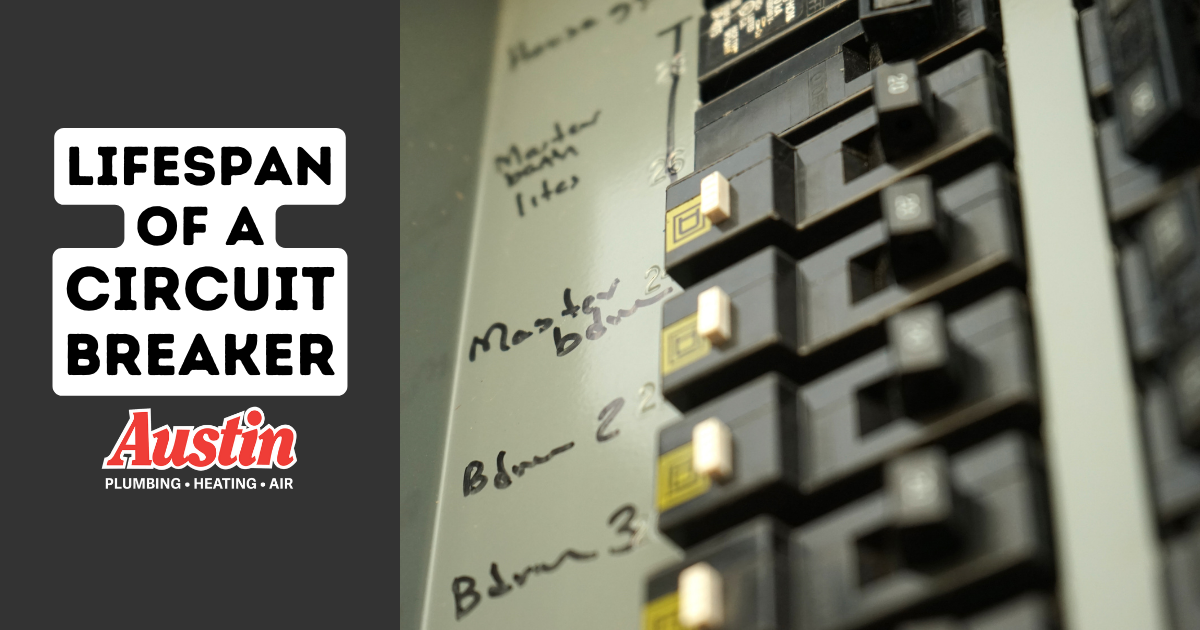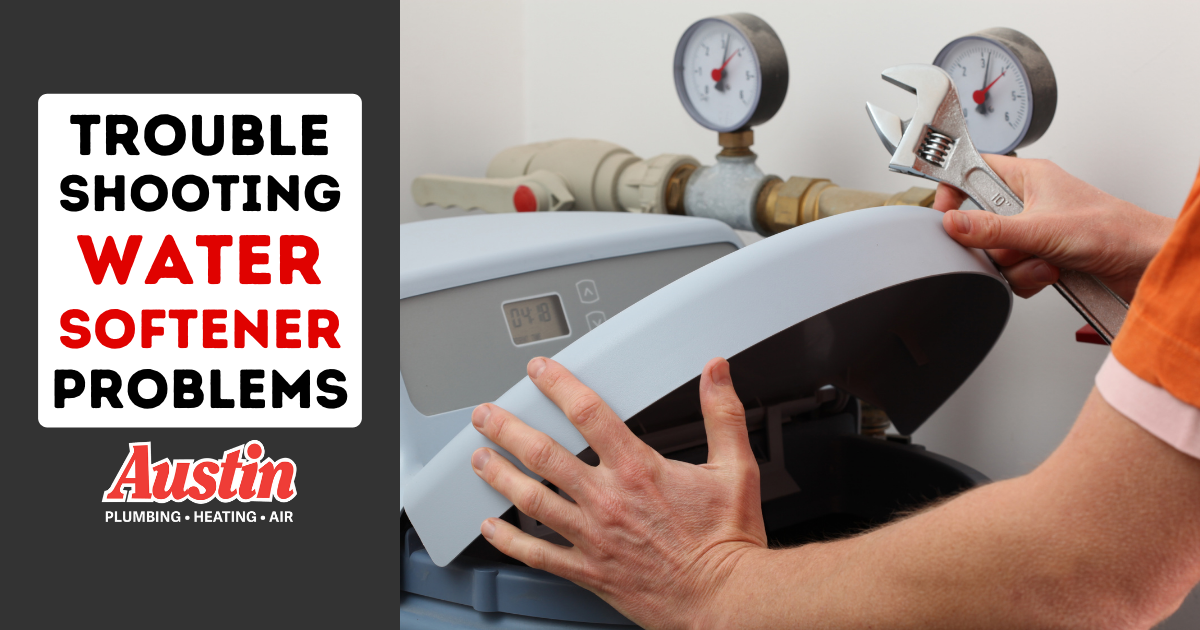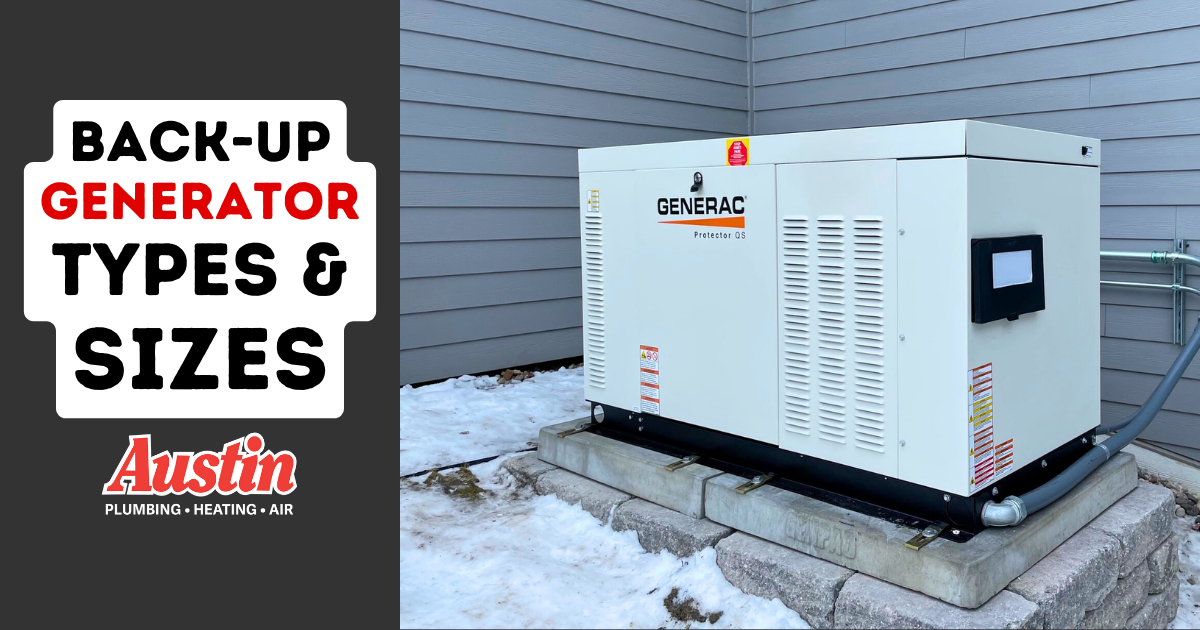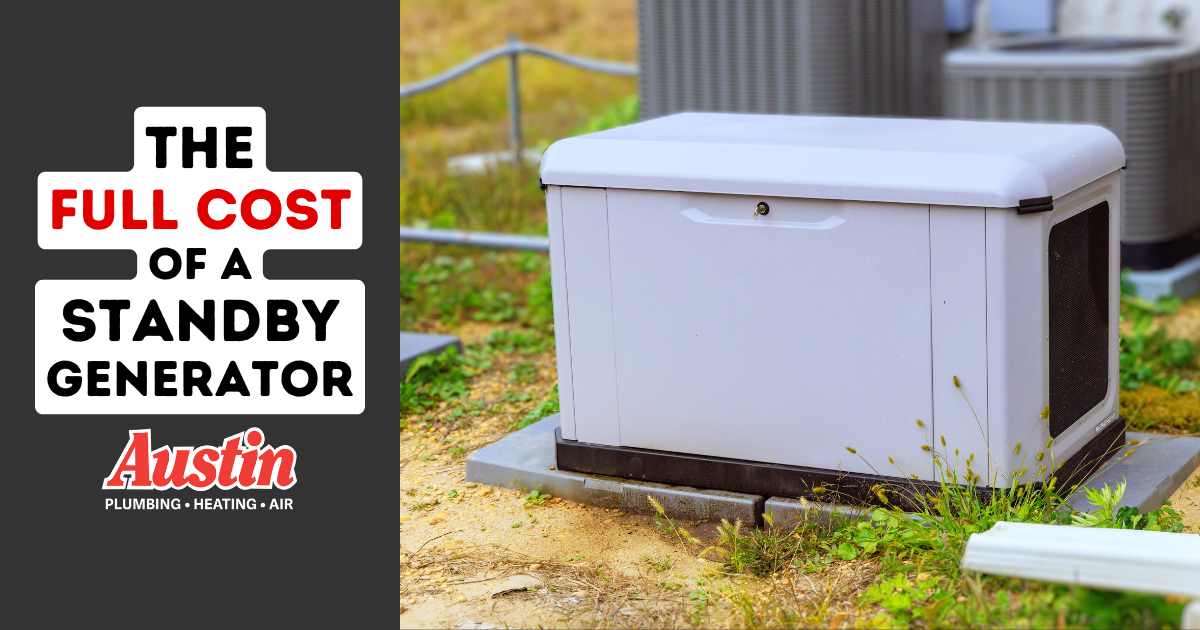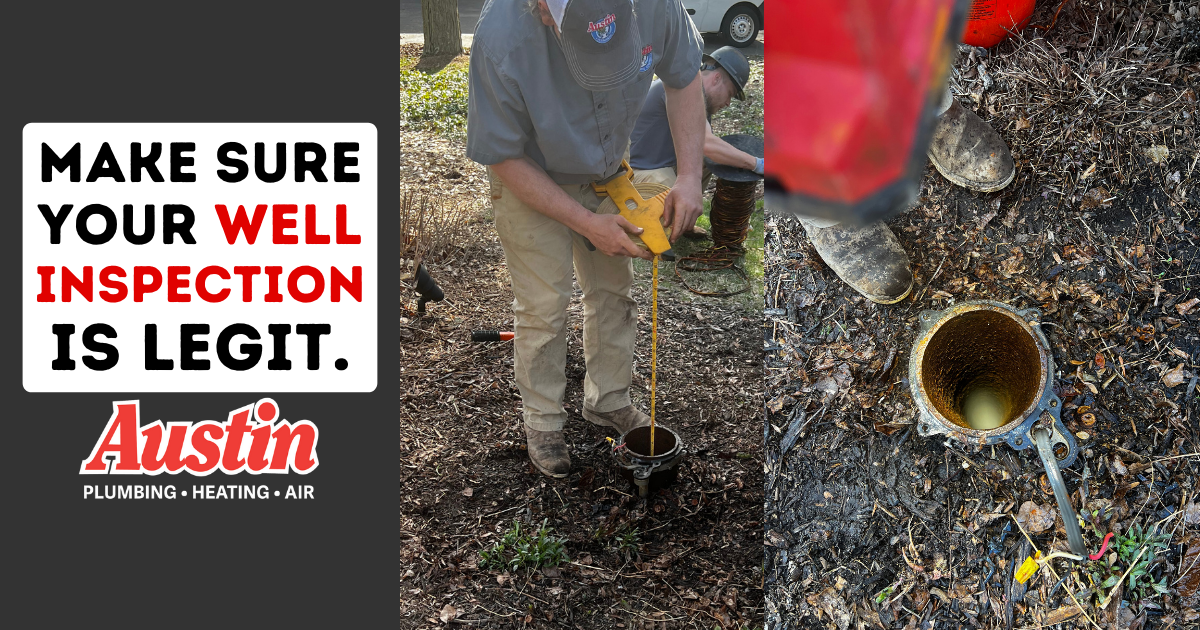Troubleshooting Water Heater Leaks
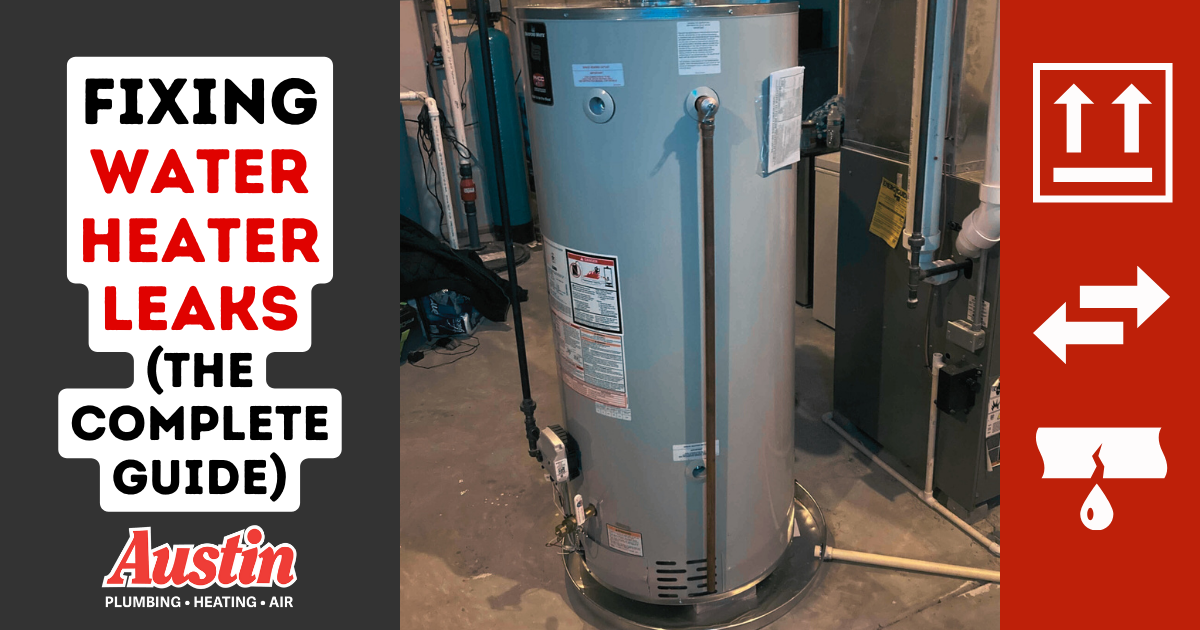
Water heater leaking? Not sure what to do about it? Austin Plumbing, Heating & Air can help.
Discovering a leaking water heater can be a frustrating and scary experience because water leaking from around your water heater can indicate a serious problem. In this article our Master Tradesmen walks you through all of the most common problems regarding water heaters leaking and what to do about it.
Step 1- Rule out other water leak sources and condensation around your water heater
Since water heaters are usually in the heart of the mechanical room in Wisconsin basements, there are often other sources of water nearby. If water is leaking from a nearby and unrelated source such as a water softener or a furnace and the water pools underneath your water heater, it may give you the impression that the water heater is leaking even though it’s not. Here are a few things to check to rule out condensation and other unrelated leaks that can make it look like your water heater tank is leaking.
Is the water around the base of your water heater just condensation? It certainly could be. Condensation from a water heater tank is common when the tank is full of cold water and being heated for the first time. This typically happens when a brand new hot water heater is filled up and fired for the first time and when a broken down water heater is repaired. Another common occurrence of this is when clients turn their water heaters off when they go on vacation or switch the heater to vacation mode. If you recently refilled your water heater, serviced your water heater, or fired it up after having it off for a long period of time, your water heater leak may just be condensation.
What else to rule out:
- Look for signs of water leaks above the water heater to make sure the source of the leak isn’t coming from an overhead pipe or other plumbing sources.
- If water has pooled around your water heater tank, track the water puddle outward until it stops. If the water puddle leads you toward another potential leak source, that may mean that the water heater is not leaking. Keep in mind that depending on the pitch of the basement floor, water may leak towards the water heater or away from the water heater, so this may not be a conclusive test.
- Look around your furnace and air conditioner for signs of leakage. During summer months and winter months in Wisconsin, your furnace and AC produce drainage. If your HVAC system and its drains become plugged, it can sometimes look like a water heater leak if the water runs toward the hot water heater tank.
- Do you have condensation forming on the pipes or tanks? In the hot and humid summers in Wisconsin, condensation can form on equipment in a basement. Look for signs of condensation on or around the water heater and nearby equipment.
Step 2- How to stop a leaking hot water heater
So you’re pretty sure that nothing else in the basement is causing your water heater leak. Before we dive into what may be happening, let’s talk about how to safely shut down your leaking water heater. If you are dealing with a major water heater leak and you need to know exactly how to stop a gas, electric or even tankless water heater from leaking, visit the Master Tradesmen Guide where we cover how to safely shut down a water heater. (LINK TO HOW TO STOP A LEAKING WATER HEATER)
Step 3- Identify where the water heater is leaking
Now that we have safely shut down the water heater, let’s look at some of the most common reasons that your water heater may be leaking. Let’s get the big one out of the way… It’s possible that your water heater is leaking because it has failed and will need to be replaced. But that is not always the case! Often water heater leaks are caused by piping connections as well as faulty water heater parts such as temperature and pressure relief valves. To help narrow down what could be the reason for your water heater leak, let’s identify where your heater is leaking from.
Water heater leaking from the top
Since water doesn’t leak up, finding water pooling on or leaking out of the top of the tank means that you may have a different source of water leaking that is dripping on top of the water heater.
Look for leaks above the water heater.
To start, inspect all of the plumbing above the water heater to make sure there isn’t something dripping down on the water heater.
Check the connections to the water heater.
Also check the connections to the top of the water heater to see if they are the reason the water heater is leaking from the top.
Check for leakage around the anode rod.
The anode rod is part of what makes a water heater last in the harsh water conditions of Wisconsin homes. These rods thread into the water tank from the top and are typically visible from above. Look for water pooling around the anode rod port.
Solution– Repair any leaking piping, failed connections at the top of the water heater or leaking anode rod.
Water heater leaking from the side
If you see water streaming down the side of your water heater, this water should be traced up to the top to double check that it’s not a leak from the top of the heater that is streaming down the side. Assuming that the top of the heater is dry, let’s dig into what could be happening with a side leak.
Check the side taps.
Some water heaters have auxiliary connection spots to hook up piping to the side of the heater. If your water heater also has side inlets, please check those plugs for leakage.
Leaking relief valve.
If your water heater is leaking out of the side and down a tube, the cause of your water heater leaking is probably a T&P valve. This valve is designed to leak if the pressure or temperature gets too high in the system but can sometimes discharge due to high pressure or other reasons.
Leaking electric elements.
If you have an electric water heater that is leaking down the side, it’s possible the leak is from an electric element. A great way to tell if this is the type of leak that you have is to see if water is leaking out of one of the element access covers. If it is, this is a good indication that a leaking element is causing your electric water heater to leak.
Solution- Replace the leaking temperature & pressure relief valve, repair any leaks on side ports, or replace any electric elements that are leaking.
Hot water heater leaking from the bottom
Once again, because water doesn’t leak up, the first place you’ll typically notice a water heater leaking is at the base. It’s important to eliminate the causes that we covered above to make sure that you are in fact dealing with a water heater leaking at the base or bottom.
Check the drain valve.
At the bottom of all water heaters is a drain valve which connects to the tank at the bottom. Inspect this drain down valve and make sure its not dripping and that it is threaded securely into the bottom of the water heater.
Look in the burner compartment.
At the bottom of the water heater, there are multiple welds from the manufacturing process. Inspect the outer edge of the water heater tank looking for cracked or leaking welds.
Solution- Replace a corroded or leaking water heater drain valve. If the water heater has a cracked weld at the bottom, you will most likely need to replace the water heater tank.
Repairing or replacing a leaking water heater
A water heater tank leak needs to be repaired or replaced quickly to avoid safety issues and other water damage. Austin Plumbing, Heating & Air can help you troubleshoot a leaking water heater, determine the exact cause and go over all of your replacement and repair options so you can decide what the right decision is for you and your family. Our Master Tradesman has produced several other water heater related articles to help you decide (what water heater is the best) (how long does a water heater last) and (how to maintain your water heater).

